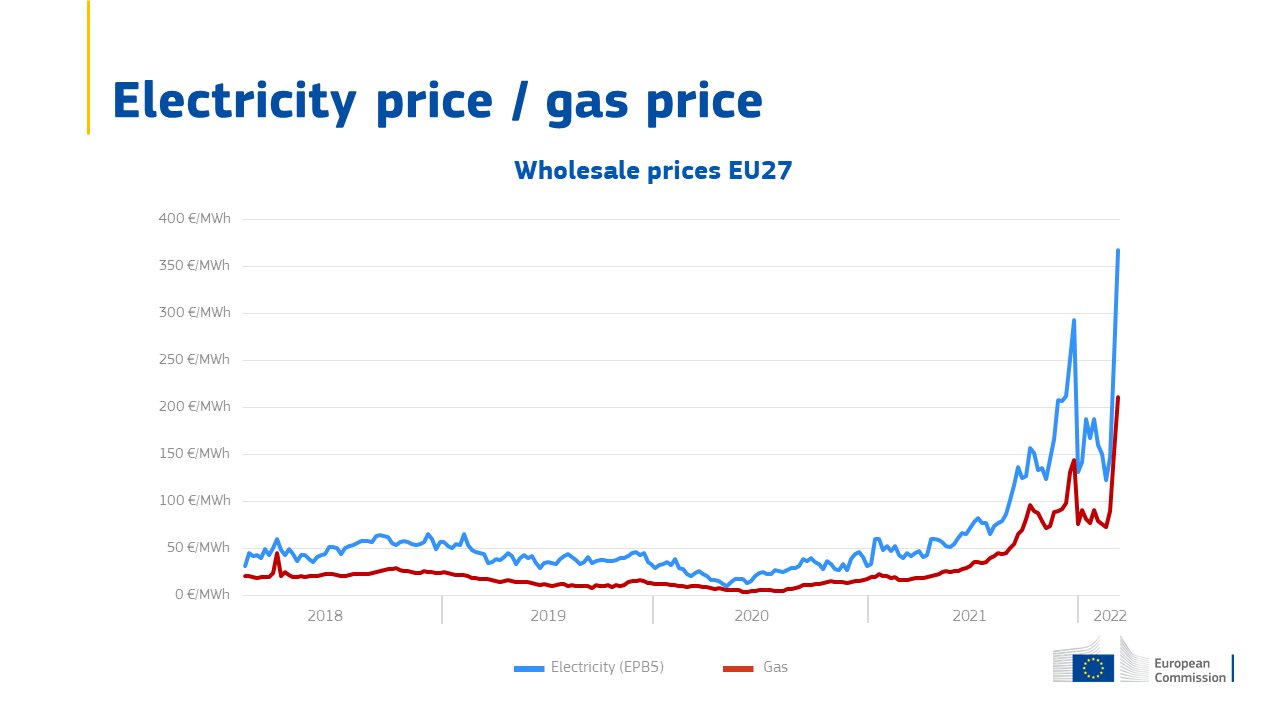EU leaders met in Versailles, France, on Thursday to discuss urgent matters facing the continent. Namely, the war in Ukraine and the soaring energy prices that are affecting almost all parts of the economy.
European Commission President Ursula von der Leyen said in Thursday's talks that a cap on gas prices that aims to curb high energy prices in the European Union should be on the table.
The energy prices have been rising since autumn last year, but the situation has been exacerbated by the conflict in Ukraine, as the EU remains hooked on Russian gas, and could further worsen if Russia seeks to cut Europe off completely.
The EU is scrambling to search for alternatives ahead of next winter to secure the availability of gas and to make Europe independent from Russian fossil fuels, but in the meantime, it is searching for ways to curb the hike in prices, especially for households, but also for businesses, who are increasingly feeling the negative impact of rising costs.
"In the short-term, we need to address high energy prices and prepare for next winter. On top of price regulation and state aid, we are looking at options to limit the rise of electricity prices," von der Leyen said.
At the national level, Member States can temporarily intervene in retail prices and the Commission will introduce a relaxed framework for state aid to companies. For financing, the Commission suggests, among other things, temporary levies on the excess profits currently being made by the energy sector.
Battleplan to reduce dependency and curb price hikes
Von der Leyen was given a mandate by European government leaders to propose a number of options for emergency measures by the end of March that could limit the "contagion effect" of gas prices on electricity prices, "including temporary price limits," according to a Commission statement.

The hike in energy prices in the EU. Credit: European Commission
It is also looking into optimising the electricity market design taking into account the benefits and drawbacks of alternative pricing mechanisms to keep electricity affordable, without disrupting supply and further investment in the green transition.
Related News
- Emissions from energy sector in 2021 reached highest level ever
- More and more Belgians cannot pay their energy bills
- Nuclear phase-out: Ukraine crisis raises new questions
By the end of the month, the Commission will introduce a task force to oversee the replenishment of stocks in view of next winter, while proposing a European policy on gas storage, which it states has to be filled up to at least 90%.
"Russia's invasion of Ukraine has aggravated the security of supply situation and driven energy prices to unprecedented levels. For the remaining weeks of this winter, Europe has sufficient amounts of gas, but we need to replenish our reserves urgently for next year," Commissioner for Energy, Kadri Simson, said.
As part of the proposed plan, the Commission is expected to present a number of possible measures to "optimise" the design of the electricity market with a view to decarbonising the energy mix by mid-May, by which time there should also be a plan to completely eradicate dependence on Russian fossil fuels by 2027.

